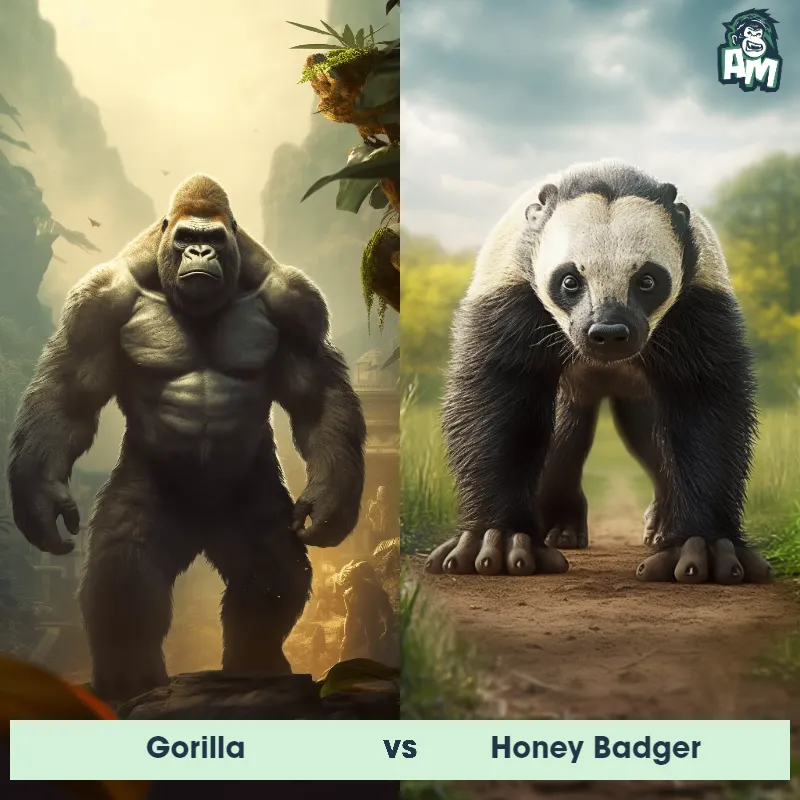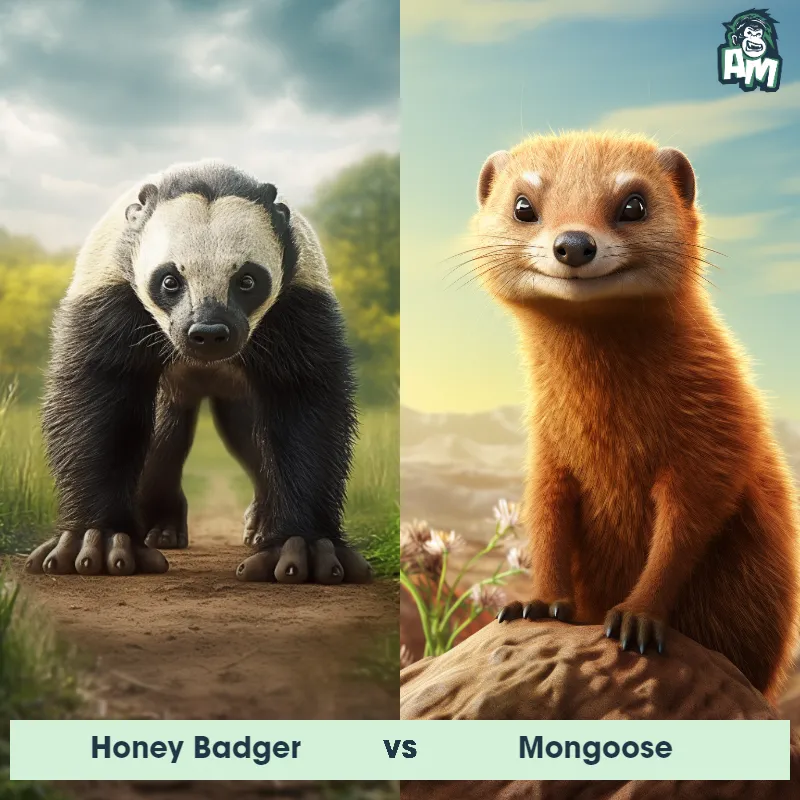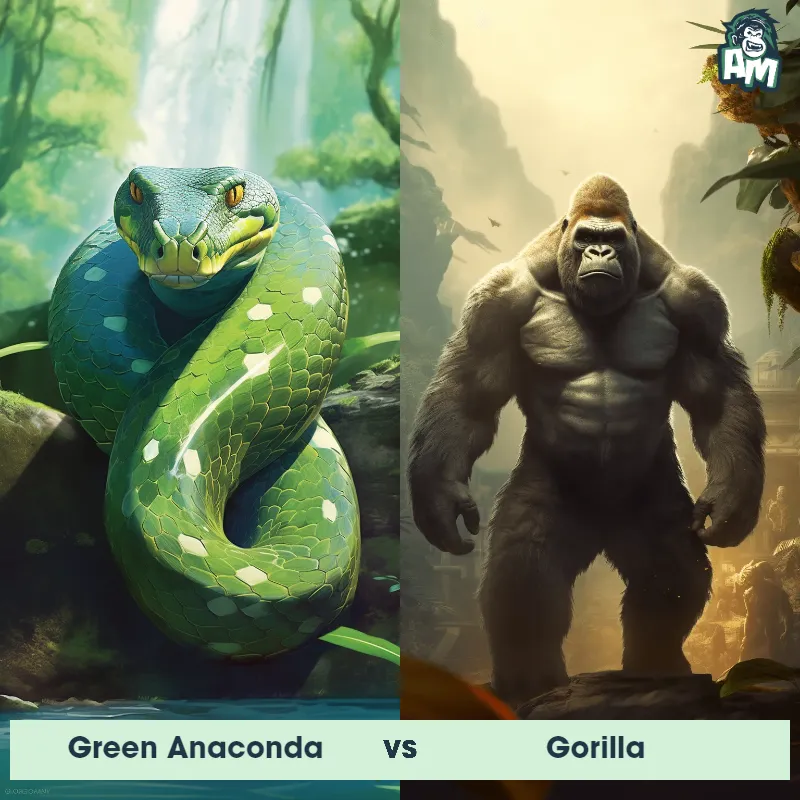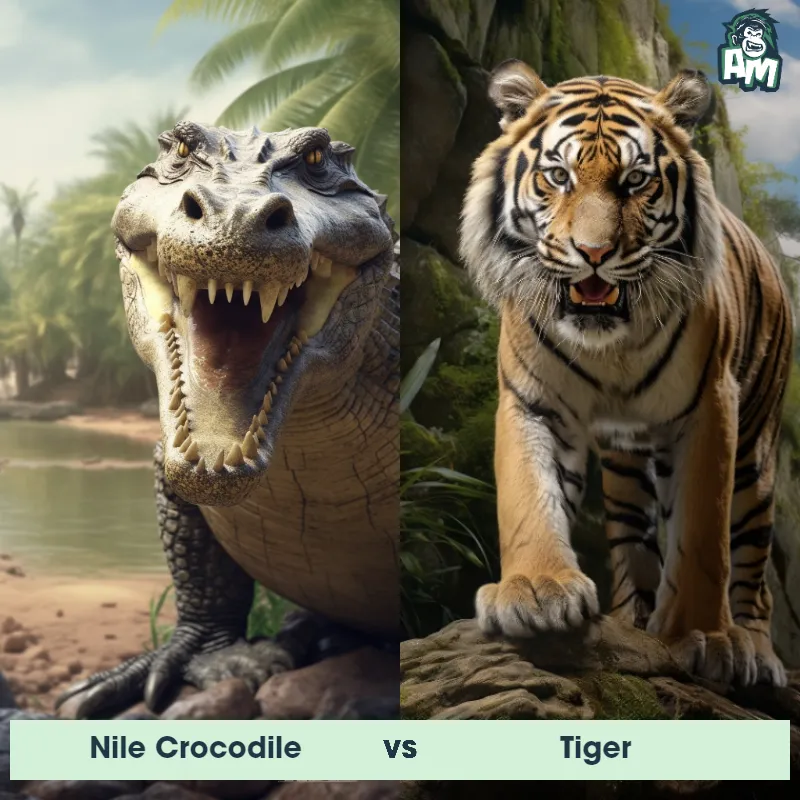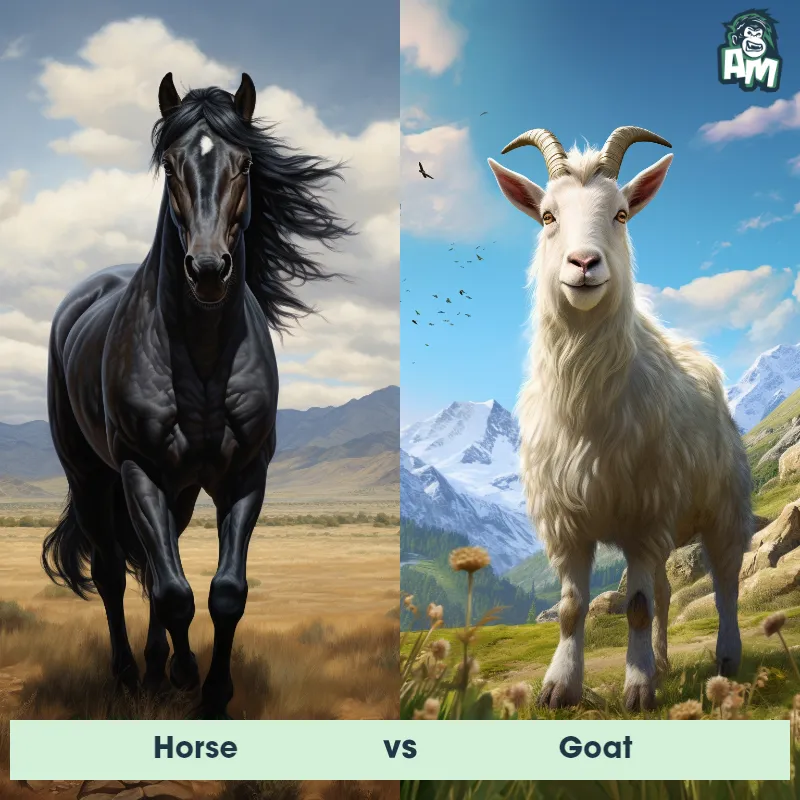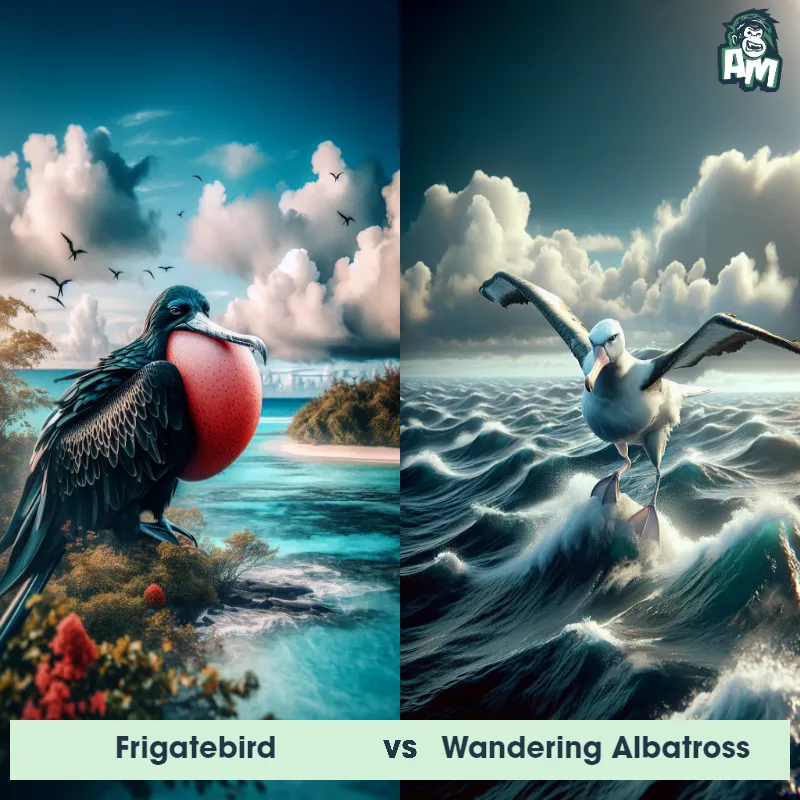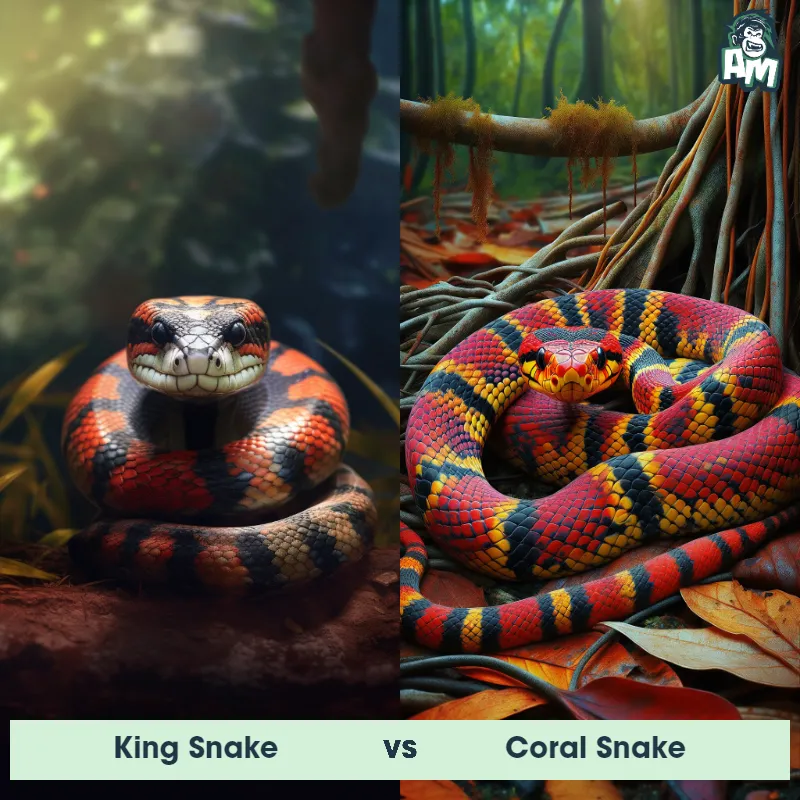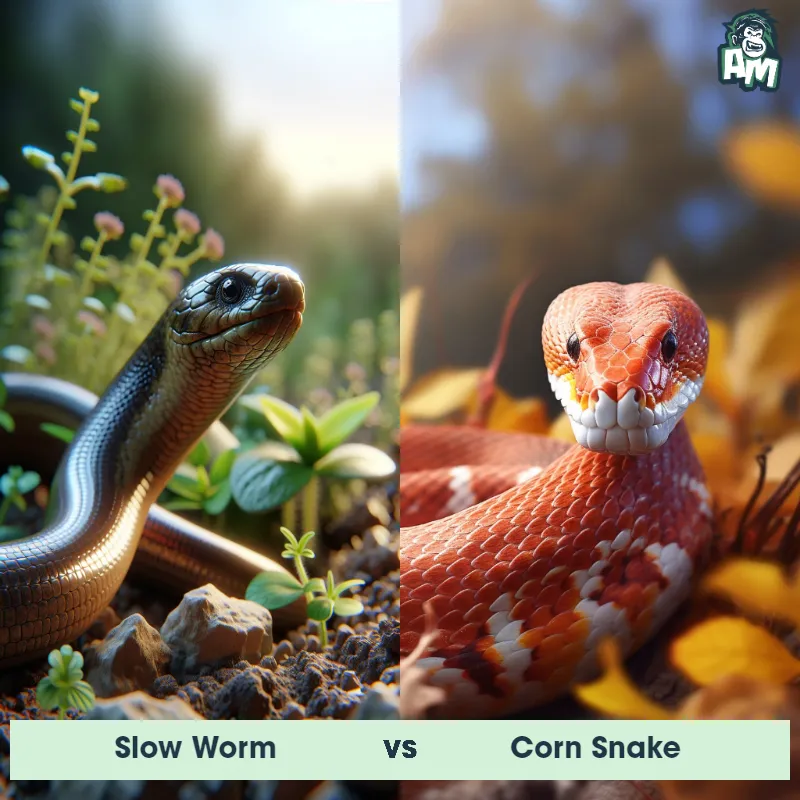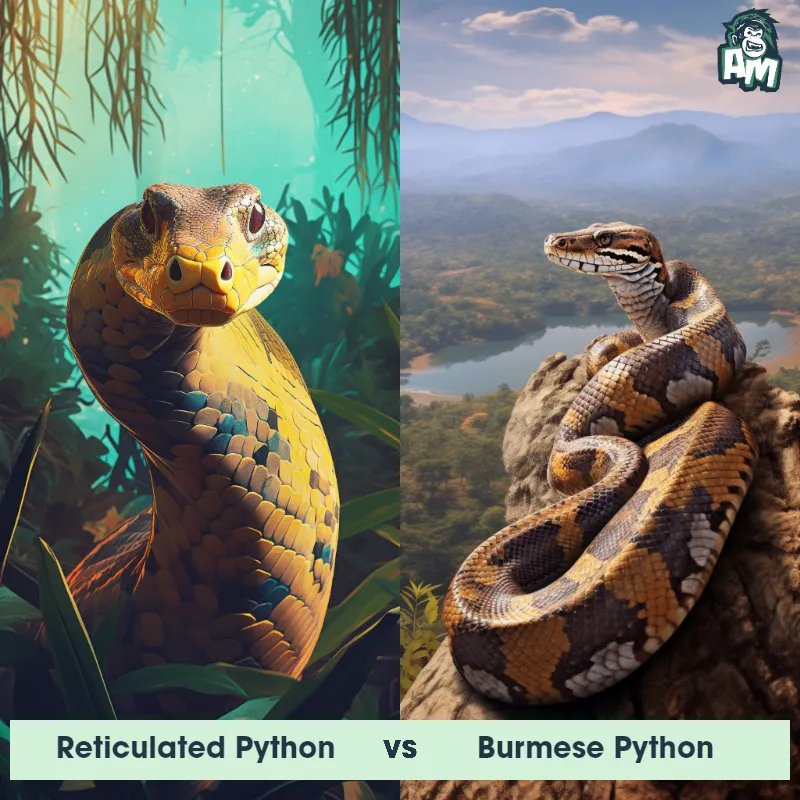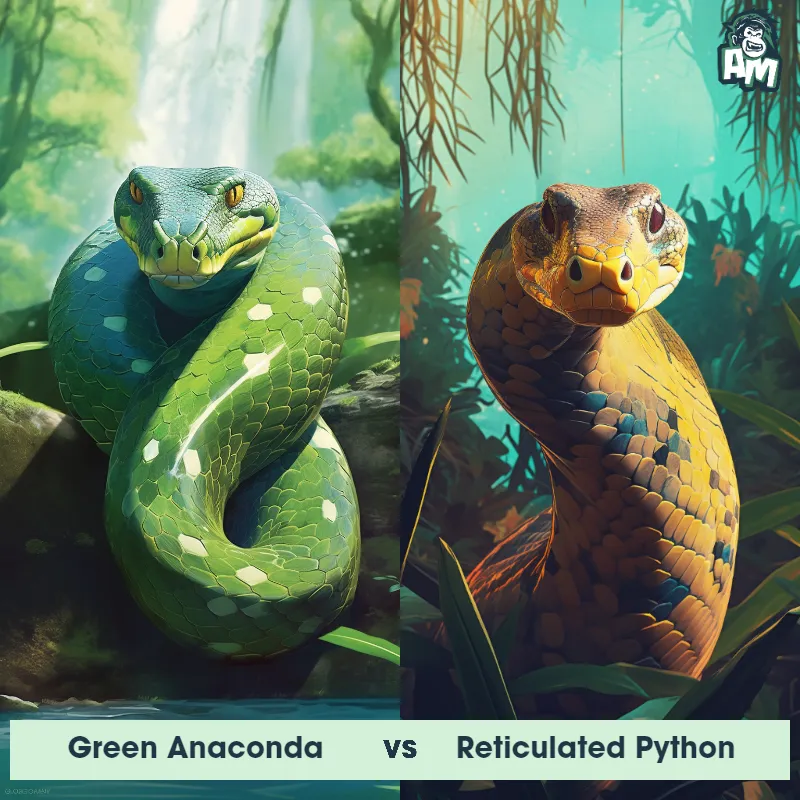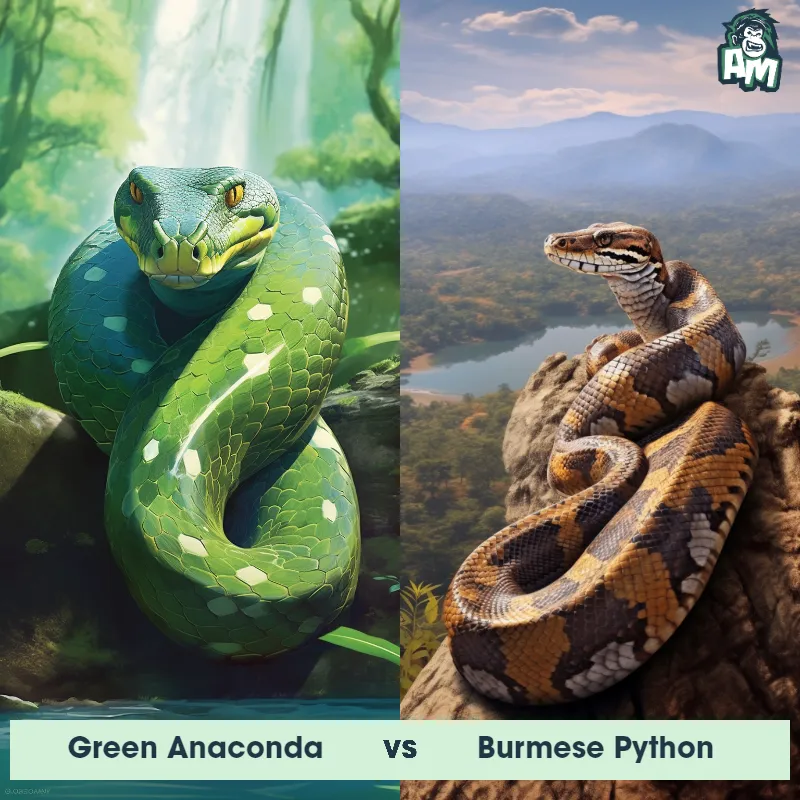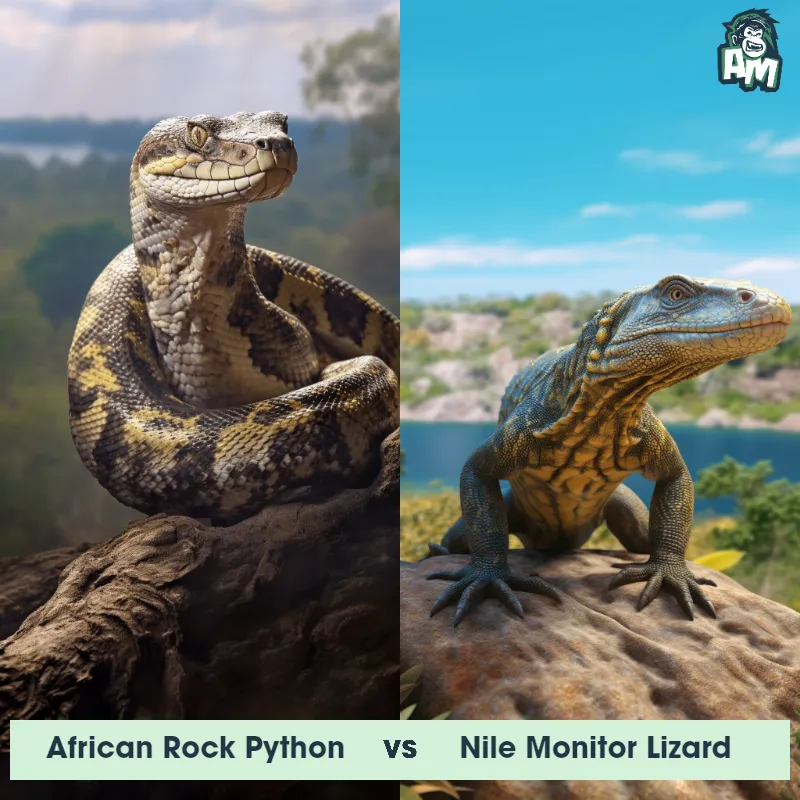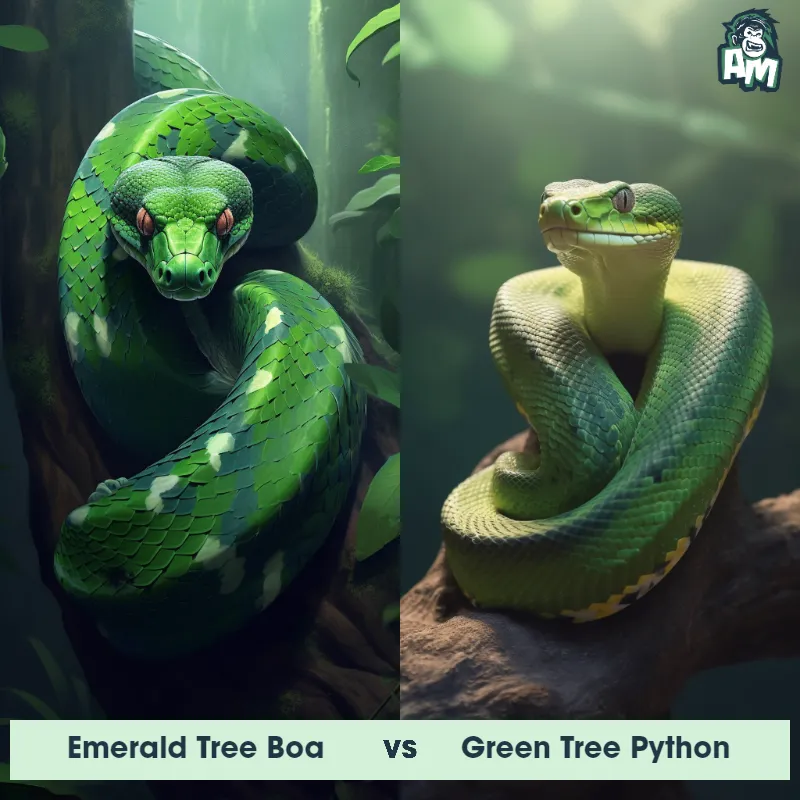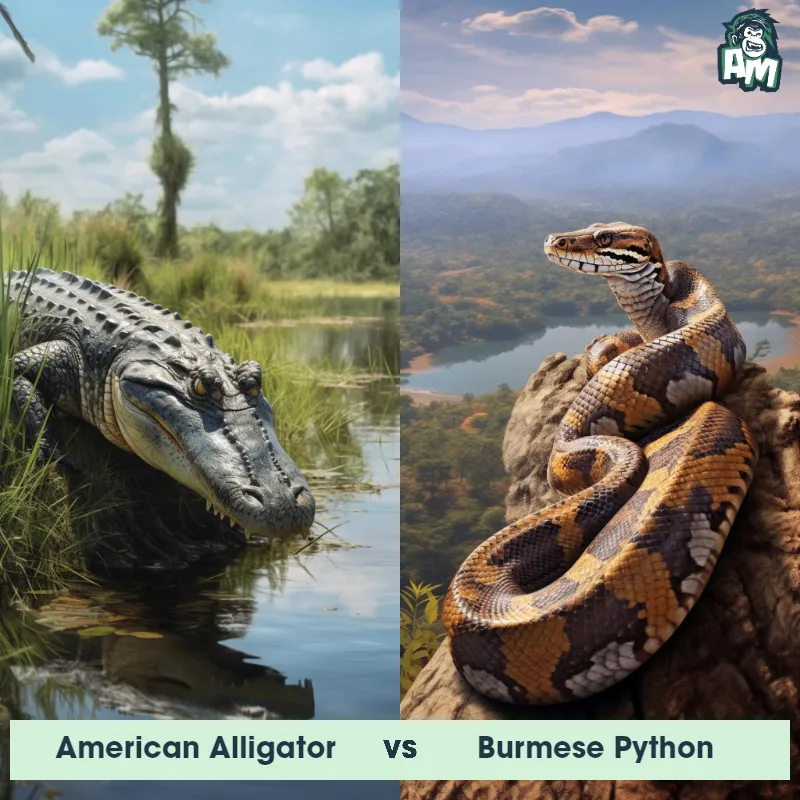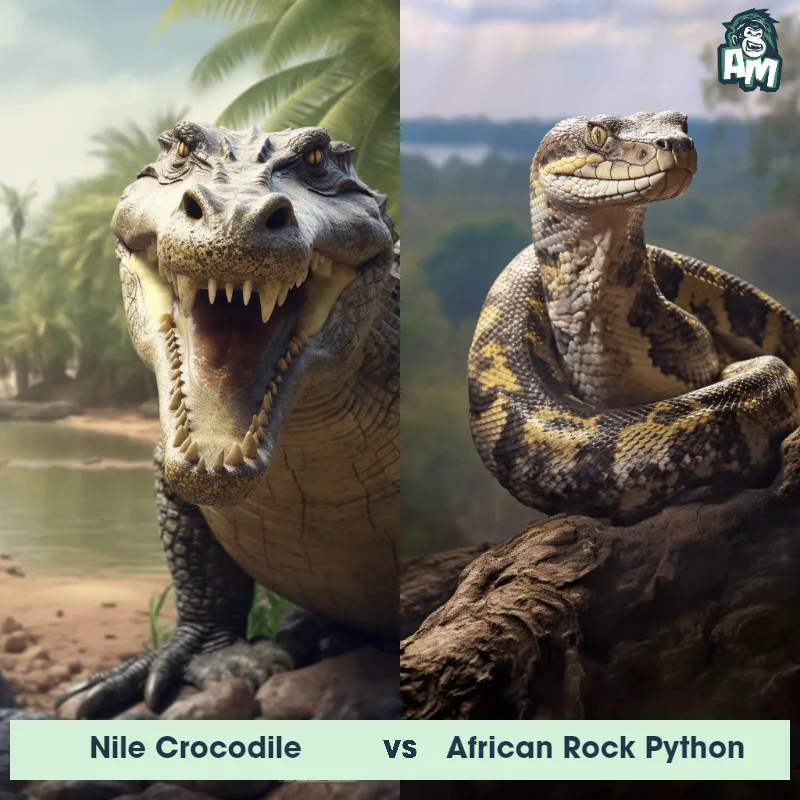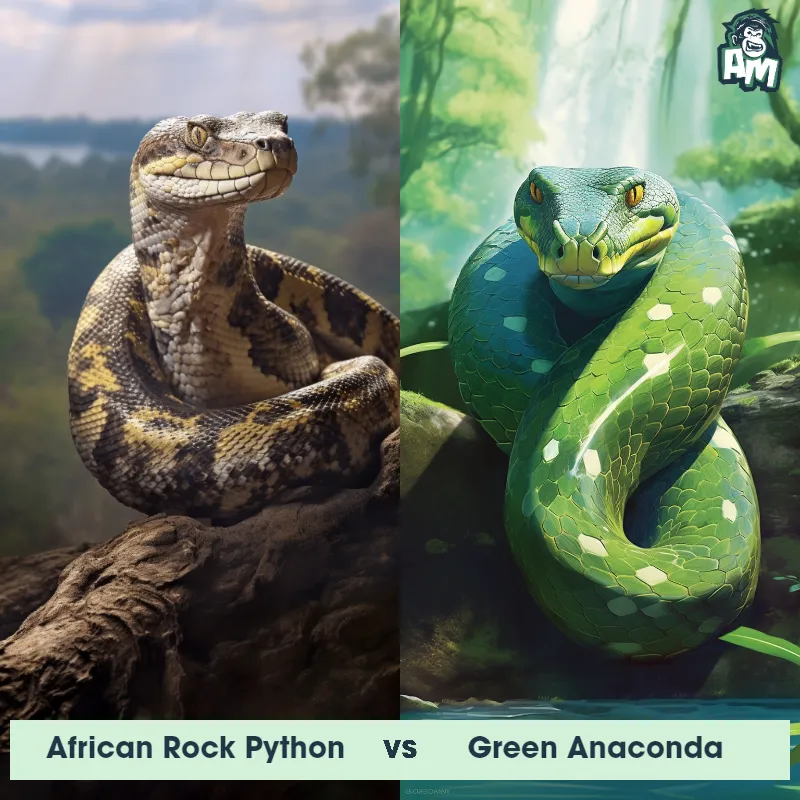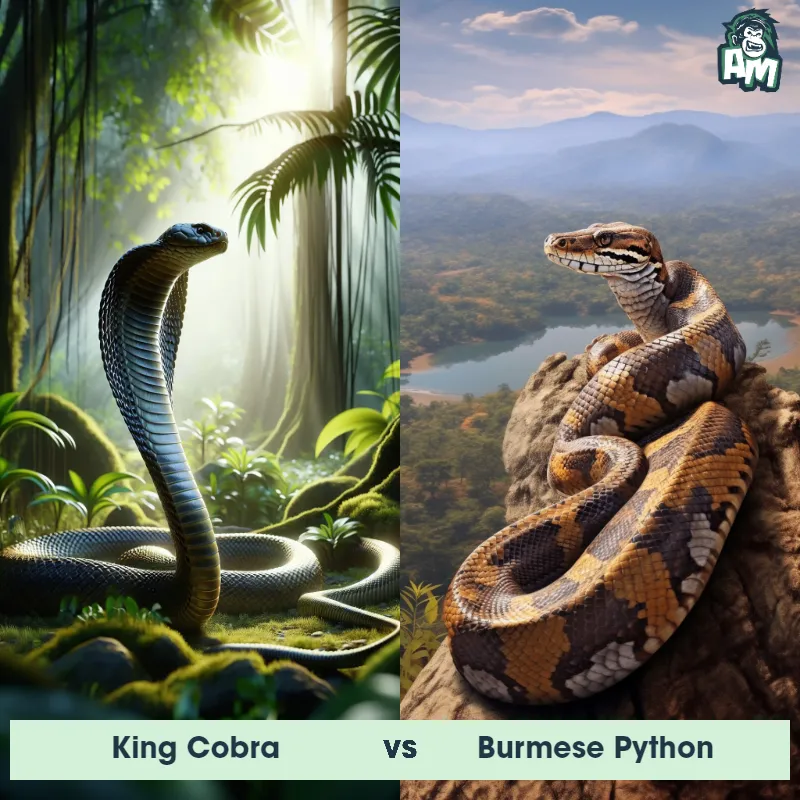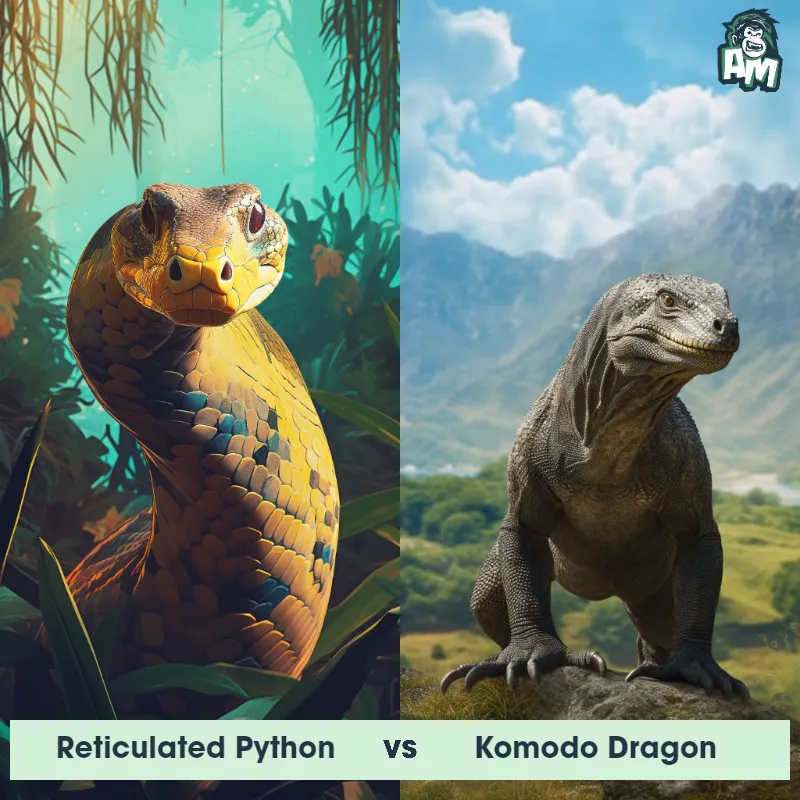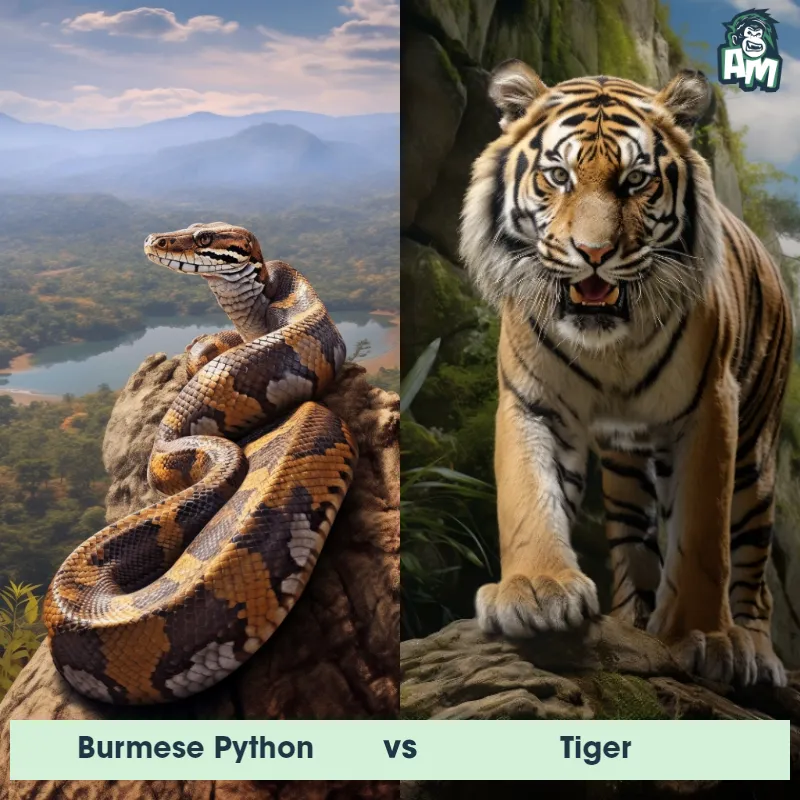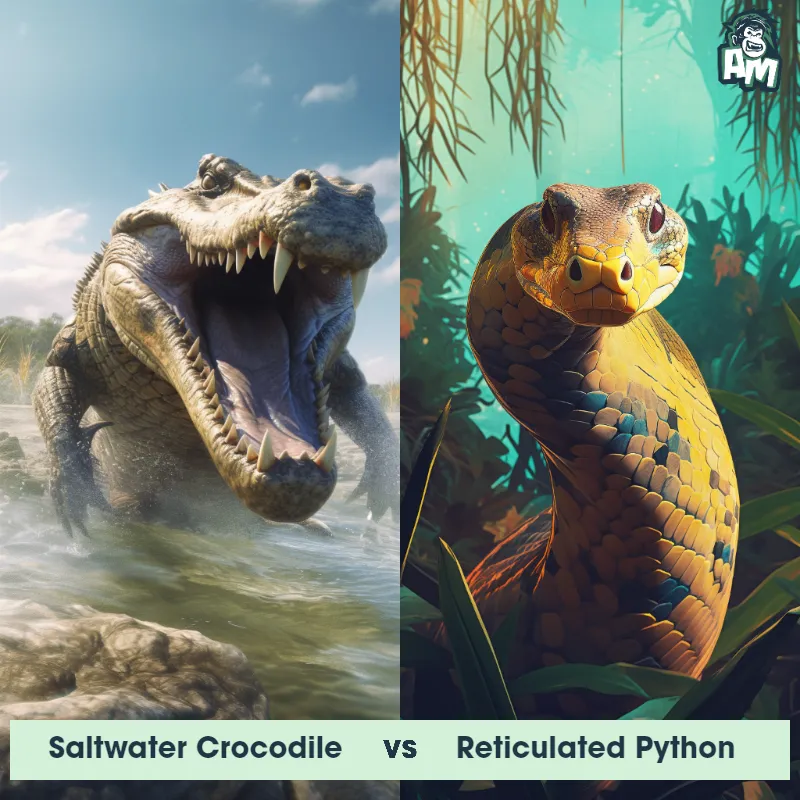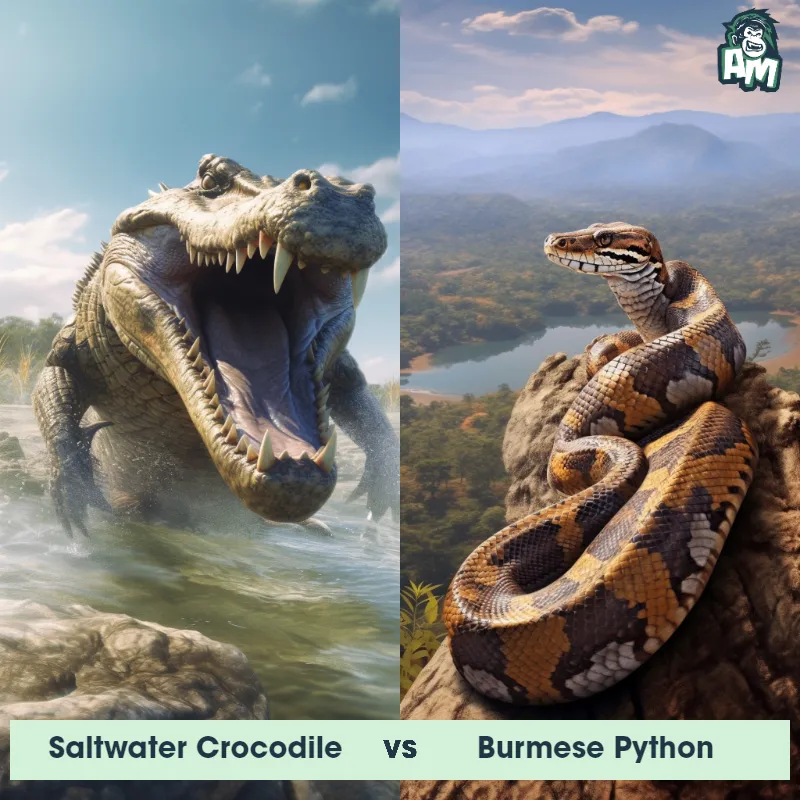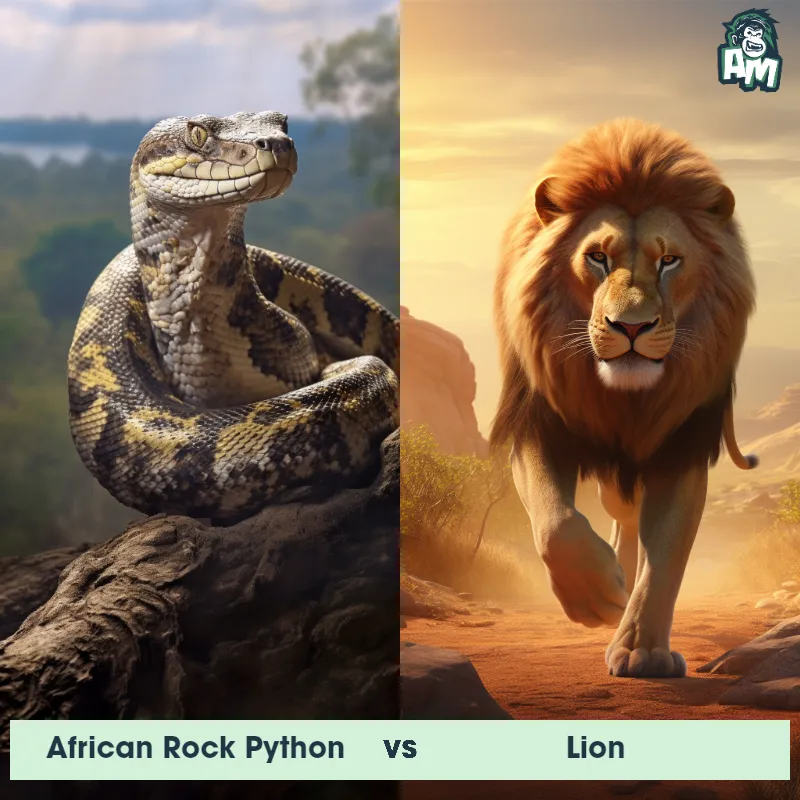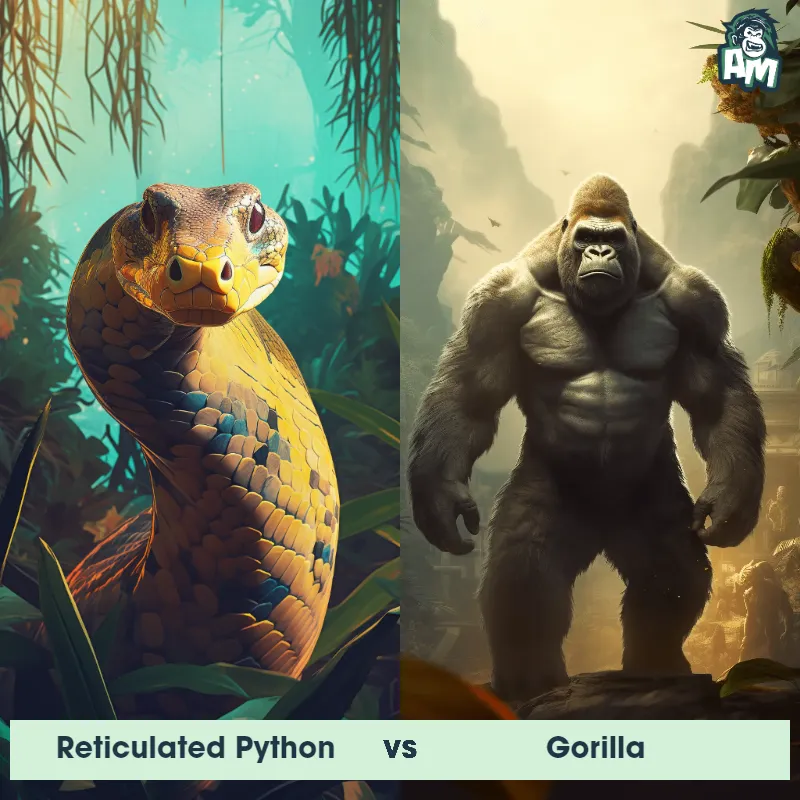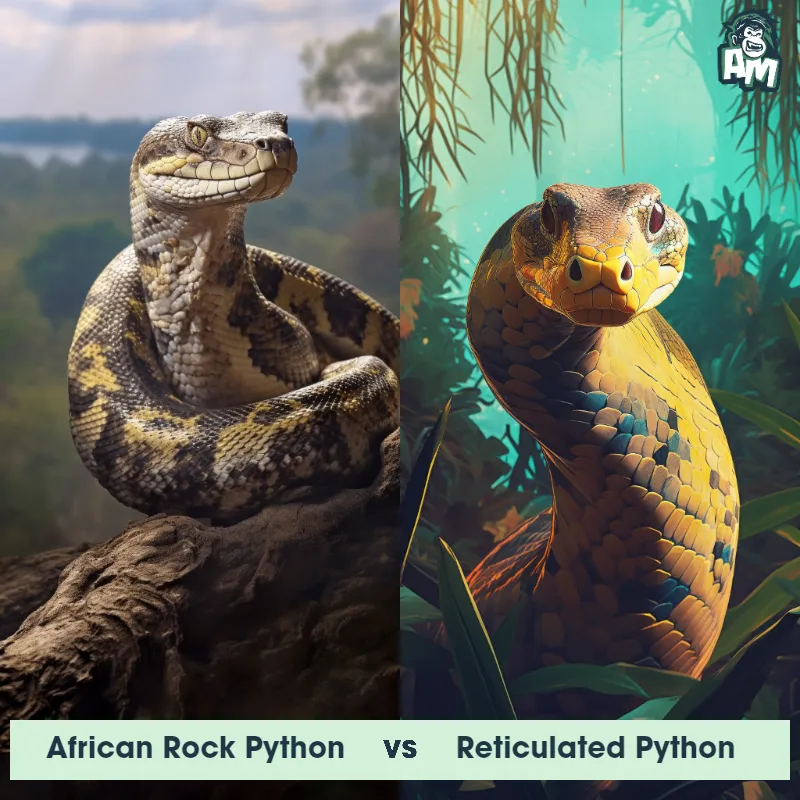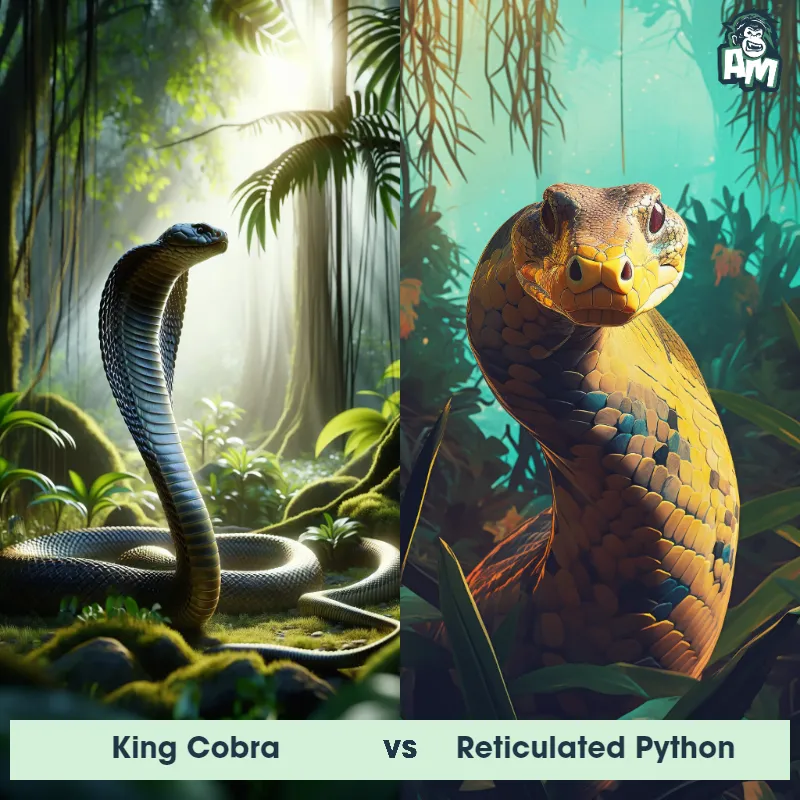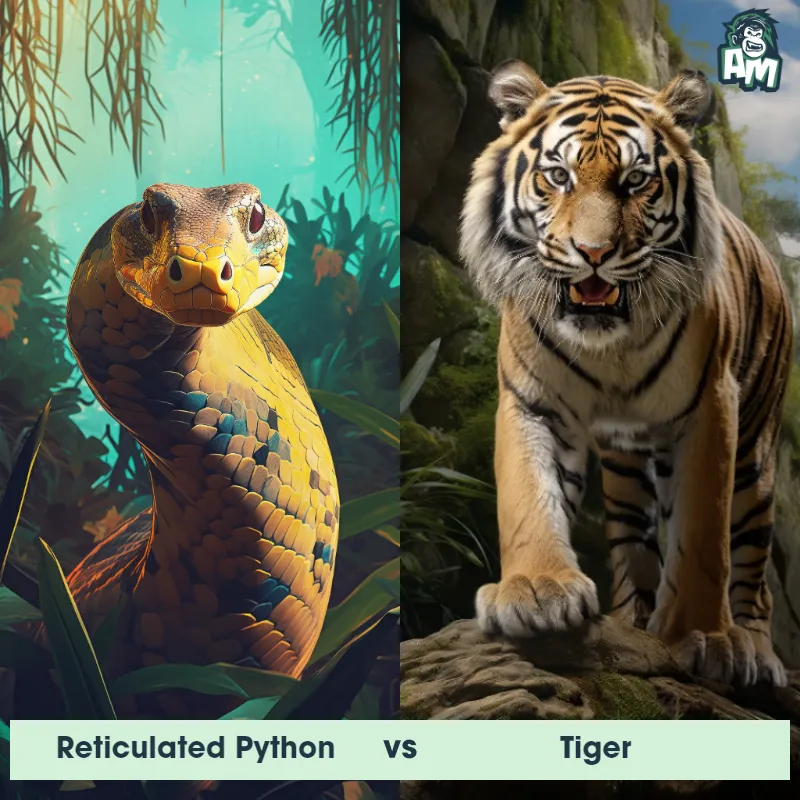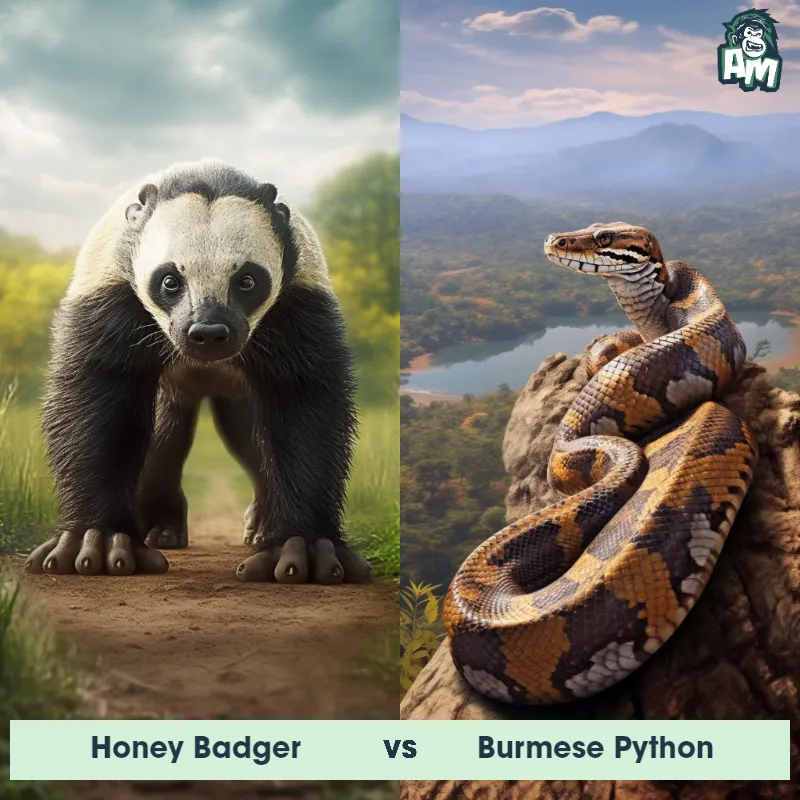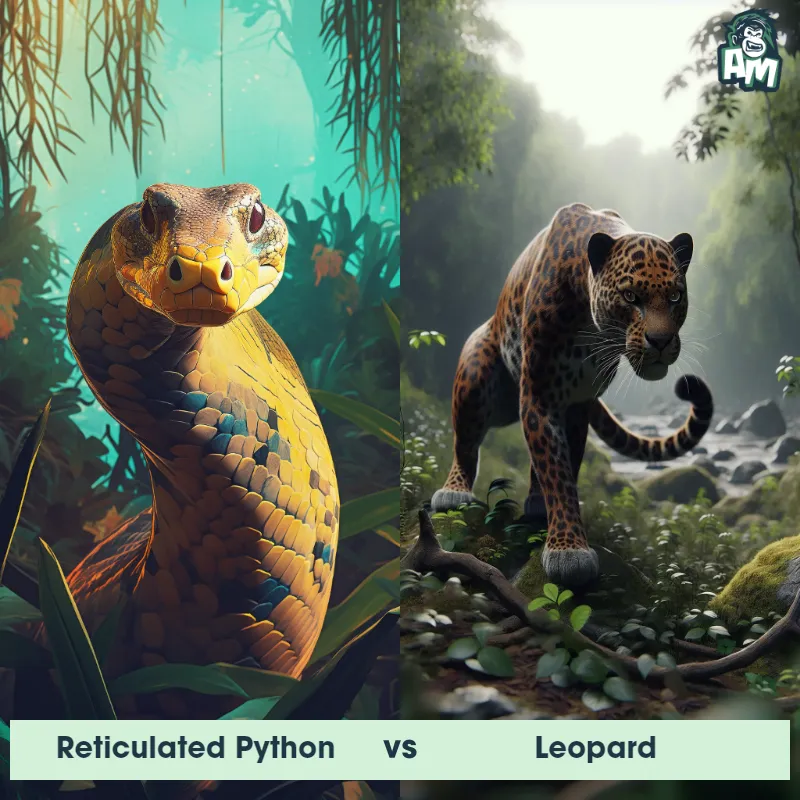African Rock Python vs Burmese PythonSee Who Wins
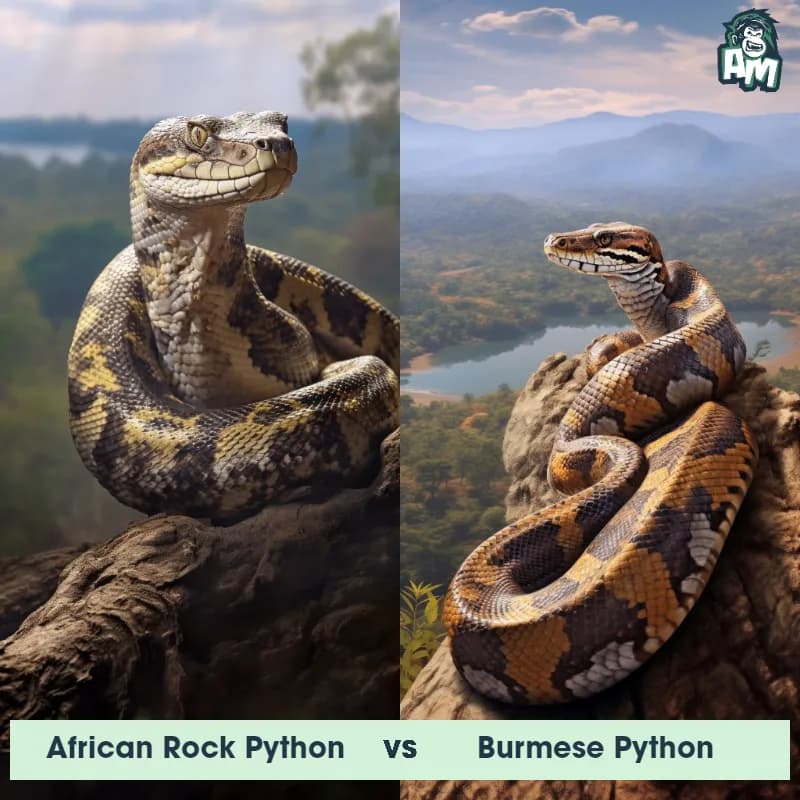
Ladies and gentlemen, welcome to this fascinating battle between two mighty constrictors of the snake world: the African Rock Python and the Burmese Python. We have a three-round contest ahead, and we'll be here to provide you with a detailed play-by-play.
Contender 1: African Rock Python
The African Rock Python, also known as the Python sebae, is one of the largest snake species in the world, growing up to 20 feet in length and weighing up to 200 pounds. They have a distinctive pattern of brown and black scales, with a triangular head and sharp teeth. African Rock Pythons are non-venomous and kill their prey by constriction, squeezing them until they suffocate.
Fun Fact: African Rock Pythons are known to eat a wide variety of prey, including antelopes, crocodiles, and even porcupines!
Contender 2: Burmese Python
The Burmese Python, also known as Python bivittatus, is one of the largest snakes in the world, growing up to 23 feet in length and weighing up to 200 pounds. They have a distinctive pattern of brown and tan scales with dark blotches, and their heads are shaped like a triangle. Burmese Pythons are non-venomous and kill their prey by constriction, squeezing their prey until it suffocates.
Fun Fact: Burmese Pythons are excellent swimmers and can stay underwater for up to 30 minutes at a time.
Matchup Stats
| African Rock Python | Burmese Python | |
|---|---|---|
| Size | Up to 20 feet (6.1 meters) | Up to 23 feet (7 meters) |
| Weight | Up to 200 pounds (91 kilograms) | Up to 200 pounds (91 kilograms) |
| Speed | Speed: 5 mph (8 km/hr) | Speed: 5 mph (8 km/hr) |
| Key Strength | Constriction | Constriction |
| Biggest Weakness | Vulnerable to attacks on the head | Vulnerable to attacks on the head |
Current Votes
African Rock Python vs Burmese Python
See Who Wins
View More Matches
Looking For More?
Similar Matches
Scientific Stats
| African Rock Python | Burmese Python | |
|---|---|---|
| Scientific Name | Python sebae | Python bivittatus |
| Family | Pythonidae | Pythonidae |
| Habitat | Terrestrial | Terrestrial |
| Geography | Sub-Saharan Africa | Southeast Asia |
| Diet | Wide variety of prey, including antelopes, crocodiles, and porcupines | Carnivorous, preys on mammals, birds, and reptiles |
| Lifespan | 12 - 30 | 20 years - 30 years |
Key Differences between African Rock Python and Burmese Python
- Coloration: The African Rock Python has a more vibrant and varied coloration, with a mix of brown, black, and gold scales, while the Burmese Python is typically a uniform brown or tan color.
- Size: The Burmese Python is generally larger than the African Rock Python, with adults reaching lengths of up to 23 feet, while the African Rock Python typically grows to around 16 feet.
- Head shape: The African Rock Python has a more triangular-shaped head, while the Burmese Python has a more rounded head.
- Scale patterns: The African Rock Python has a more irregular and varied scale pattern, while the Burmese Python has a more uniform and symmetrical scale pattern.
- Habitat: The African Rock Python is found primarily in sub-Saharan Africa, while the Burmese Python is native to Southeast Asia.



